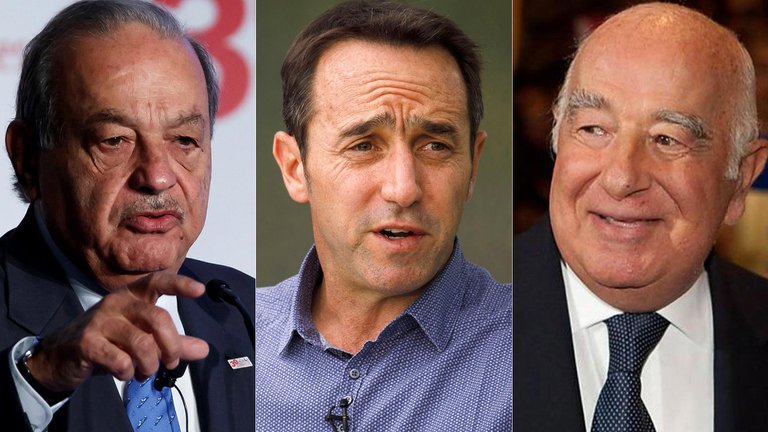RIO DE JANEIRO, BRAZIL – The coronavirus pandemic will increase the number of poor and unemployed in Latin America but is also increasing the region’s largest fortunes, according to a report released on Monday by Oxfam Charitable organization.

According to this global network of non-governmental organizations, at least 73 of Latin America and the Caribbean’s billionaires have increased their fortunes by a total of US$48.2 billion (R$241 billion) between March and June, the period when COVID-19 took hold in the region.
According to Oxfam, that sum “is equivalent to one-third of the total resources provided by economic stimulus packages adopted by all the countries in the region” to help the poorest, the unemployed and casual workers during the pandemic.
The report clearly concludes that “billionaires in this part of the world remain immune to the economic crisis triggered by the coronavirus pandemic in one of the world’s most unequal regions.”
The financial phenomenon has been particularly vertiginous in Brazil, the second-most heavily affected country by the pandemic in the world, behind only the United States, and which according to the latest official balance figures counts over 87,000 deaths and 2.4 million infections.
According to Oxfam, there are 42 Brazilian billionaires who have increased their already vast fortunes by a total of US$34 billion since March, while their combined liquid assets rose from US$123 to US$157.1 billion by early July.
Pandemic is not equal for all
Oxfam explained that to gauge the progress of the great fortunes it relied on real-time data from Forbes magazine, a financial magazine that has been published in the United States since 1917 and has been posting its well-known list of billionaires since 1987.
“COVID-19 is not the same for everyone. While the majority of the population risks infection so as not to lose their jobs and buy food, billionaires need not worry,” Oxfam Brazil director Katia Maia said in a note.
She added that the data in the report show that the wealthiest “are in another world, that of privileges and fortunes that are growing amid what is perhaps the greatest economic, social and health crisis on the planet of the past century.”
The other side of that coin also shows that while eight new millionaires have emerged in Latin America and the Caribbean since last March, there are 52 million people that several organizations estimate will return to poverty in the region, along with another 40 million to join the unemployment lines.
Who pays the bill?
That question, which gives the title to Oxfam’s report, is answered in the document itself, which is clear in the sense that the wealthiest should contribute the most to try to minimize the disaster to come.
According to Oxfam’s calculations, based on official data, the drop in tax revenue in Latin American and Caribbean countries in 2020 will be equivalent to two percent of the gross domestic product (GDP), which represents a loss of US$113 billion and accounts for 59 percent of all regional public investment in health.
Faced with this tax collapse scenario, which could lead to a “dismantling” of public services, Oxfam presents in its report a number of proposals to “tackle the calamity”.
First, it proposes imposing taxes on large fortunes of high-net-worth individuals, together with public packages to rescue companies that can be saved, and taxes on the extraordinary results of large corporations. “If an extraordinary tax on large fortunes were to be applied, progressively, between two and 3.5 percent in each country, on net worth above US$1 million, up to US$14.26 billion could be collected,” the report notes, stressing that it is based on a conservative estimate.
It further suggests that a “new fiscal pact” be established to “strengthen the tax culture” and curb tax evasion, but all of this with a sharp reduction in taxes for those in poverty.
Brazil: a case apart
Just as it is an example of the multiplication of fortunes, Brazil is also the country where poverty and unemployment will increase the most, partly because of its 210 million inhabitants, but also because of its acute social inequality.
The report notes that before the pandemic, Brazil had some 12 million unemployed and 40 million casual workers “without any social protection”. According to various studies, the unemployment rate could rise up to four times by the end of the year, among other reasons because 600,000 companies have already closed permanently in Brazil due to the pandemic.
“These are frightening data. We see a small group of millionaires earning more than ever in one of the world’s most unequal regions,” and also how ”in Brazil and other Latin American and Caribbean countries millions of people are struggling to keep their heads above water,” said Maia.
Source: EFE

